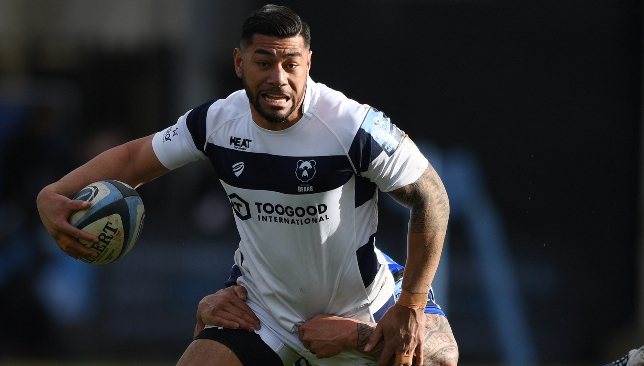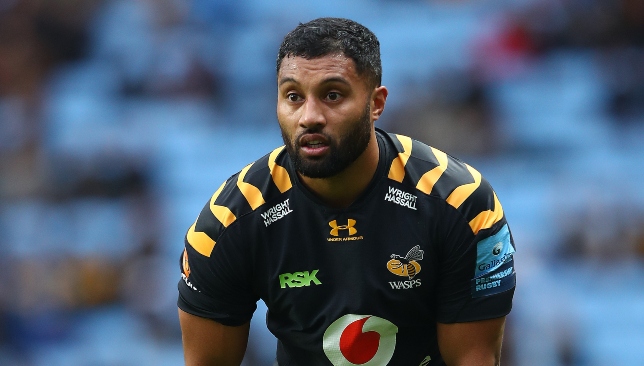
When James Lowe boarded a flight from Auckland to Dublin three years ago to sign for Leinster, he put his dreams of playing for the All Blacks aside so that he could help support his family.
His mother had suffered a stroke leaving her unable to work and, as a result, his family came into financial trouble. Staying in New Zealand with the Chiefs would have proved selfish, even if it meant pursuing his life-long dream.
It is a tough decision for any young man to turn on his childhood aspiration, however, the lure of a handsome offer in Ireland was his opportunity to give back to his family.
The Nelson native has since proven to be a menacing presence and fan favourite during his time in Dublin, scoring 28 tries in 43 matches. As a result of his class, an Ireland call-up awaits later this year via the residency rule.
Previously it had been a rarity for any New Zealand players to leave the country while still relatively early into their respective careers.
The lure of the All Blacks jersey has a strong pull for any athlete and was enough to keep players at home until they reached their pensionable years.
However, times are slowly changing, and more younger players are beginning to take up contracts ashore. It is a trend that is only going to continue.
If you are third or fourth choice in a certain position and an offer comes up in Ireland, England or France, then why wouldn’t you seize the opportunity of earning more money and playing in a different country. Sometimes these offers may only come around once.
Learning about a new culture, expanding your horizons, learning from new players and doing some travelling in the break of a season all add to the decision to switch abroad.

Everyone weighs up what is best for them and, over the years, players have left because they want to do what is best for their families.
For players of Maori and Polynesian heritage, it is a massive part of their culture. It’s never an easy decision to leave New Zealand Rugby but family is pretty important for a lot of guys.
Charles Piutau is an example. He grew up as the youngest of 12 living in a four-bedroom house in the south Auckland suburb of Mangere.
After earning 17 All Blacks caps as a 23-year-old, he left the Blues to sign for Wasps in 2015. Now five years on, he is the highest-paid player in the Premiership, earning a reported £1m per season with Bristol.
On the Northern Hemisphere stage, Piutau is an electric player and one that can make the magic happen whenever he has ball in hand. If he remained in New Zealand, and international selection went in his favour, there is a chance he could have amassed 50 caps. Hindsight, however, is a wonderful thing.
It just goes to show that even when players are young and still promising enough to make an impact at international level, rugby is not everything. And with the game not lasting forever, players need to do the best to look after their families.

Similarly, Lima Sopoaga’s dreams of representing the All Blacks at a World Cup were dashed when he signed for Wasps as a 27-year-old in 2018.
After making 18 international appearances, the Wellington man moved to the UK to secure the financial future of his family, knowing he only has a limited time span to use his talents on the field.
“Guys in New Zealand who are second or third string, we’re not getting paid the same as the Beauden Barretts. I fell into that category, I’ve no qualms about it, that’s the way it goes,” he said at the time of his decision.
Leaving New Zealand means players are not considered for international selection until they return home. Australia give dispensation to players who have won 60 caps and South Africa 30. In Ireland and England, if you play outside your respective country, then you are not considered for selection either.
Malaki Fekitoa (25) and Steve Luatua (26) left Kiwi shores at a time when they should have been in the prime of their careers. Both had plenty to offer in the lead up to the 2019 World Cup. However, the allure of a deal abroad was simply too attractive than being just a fringe player.
Every player has a different story and different reasons for their departure. Money is a driving factor, but to accuse any man of personal greed is unfair, especially when you don’t know someones personal situation.
You have to be happy for players if they can make a better life for their families. Every sports star has a short career and, such is the unpredictable nature of rugby, you need to make the most of those precious chances in front of you.